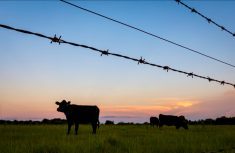Workers on the verge of striking at Cargill’s major beef cattle slaughter plant at High River, Alta. will vote this week on a new contract offer from the company.
However, the union bargaining committee for the workers, represented by the United Food and Commercial Workers (UFCW) Local 401, is recommending employees vote against the proposal.
UFCW, which represents over 2,000 workers at the plant, on Friday posted a copy of Cargill’s latest offer on its website and said it will conduct votes on the proposal Tuesday and Wednesday.
Read Also

Ample supplies and improved livestock sector to boost Canadian feed sector: FCC
Abundant feed grain supplies and improved profitability for the livestock sector should support strong feed demand and sales through the winter, says a new report from Farm Credit Canada.
“Cargill is trying to tell us that this is all they have to give and that it’s ‘fair,’ but we don’t buy it,” the union said in a notice to workers.
“It’s absurd that Cargill would want to see a prolonged attack on their brand. If ever a group of workers deserved more, it is here, now,” UFCW 401 president Tom Hesse said in the notice.
The most recent collective bargaining agreement for Cargill’s employees at High River expired at the end of 2020. Following a strike vote by employees on Nov. 4, the union served the company with strike notice on Nov. 10, putting the workers in position to picket effective Dec. 6.
Among other points relating to benefits, employee leave and policies regarding treatment of temporary foreign workers, Cargill’s offer proposes a $2 per hour raise for production workers and 50 cent per hour raise for maintenance workers immediately after ratification, and increases of 50 and 40 cents per hour respectively each year for the following five years. It also includes retroactive pay of $1 and 50 cents per hour respectively for hours worked since Jan. 3 this year.
Asked Monday via email about the bargaining committee’s recommendation, a Cargill representative said the company didn’t have further updates to share but reiterated it “believe(s) that our proposal is very fair and representative of our values to put people first and do the right thing.”
“If Cargill doesn’t want a strike…their option is clear,” the union said in its notice to workers. “Give you higher wage increases, better retro-pay, and a significant pandemic bonus. There is not much time until we walk out, so Cargill, now is the time to try harder.”
Cargill on Monday reiterated it’s “optimistic that we can work towards an agreement by the union’s Dec. 6 strike deadline.”
As was made clear in April last year due to COVID-19 outbreaks among employees, and in a flood in 2013, work stoppages at High River can potentially weigh on throughput of beef cattle across Western Canada.
The High River plant, about 40 km south of Calgary, has capacity to slaughter about 4,500 cattle per day and is estimated to represent about 36 per cent of Canada’s domestic beef processing capacity.
Cargill’s other beef plants in Canada include a slaughter plant at Guelph, Ont., plus case-ready meat facilities at Calgary, Guelph and Chambly, Que. and beef patty processing plants at Spruce Grove, Alta. and Brampton, Ont. — Glacier FarmMedia Network
















